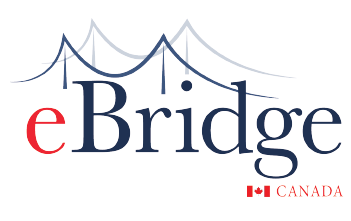-
Module 1: Teaching Young Learners 5
Teaching English to young learners has become an on-demand job globally. In this module, we hope to bring to light a deeper understanding of who young learners are and how to productively teach and motivate them. At first, it may seem daunting to teach a class of young children, but having knowledge on who the young learners are and what helps them grow will hopefully put your mind at ease.
-
1.1 IntroductionLecture1.120 min
-
1.2 Understanding young learnersLecture1.220 min
-
1.3 Motivation CopyLecture1.320 min
-
1.4 Strategies for teaching young children CopyLecture1.415 min
-
QuizQuiz1.120 questions
-
-
Module 2: Aims and Outcomes 8
In this module, we will go over some of the attributes of what it means to be an English teacher to young learners. This is essential in order for the students to get the most out of their learning and also, it allows the teacher to keep themselves at a standard in which they can always work towards. This age group may not be the easiest students to teach, but some may argue it is the most rewarding.
-
2.1 The Role of a TeacherLecture2.1
-
2.2 Teacher traitsLecture2.2
-
2.3 Intended OutcomesLecture2.3
-
2.4 Learning objectivesLecture2.4
-
2.5 Lesson objectives appropriate for young learnersLecture2.5
-
2.6 Importance of having expectations for behaviourLecture2.6
-
2.7 Communicating expectationsLecture2.7
-
QuizQuiz2.10 question
-
-
Module 3: Grammar 7
Grammar in the classroom is of course a very important component in teaching English. Since we are focusing on young learners it is essential that the teacher knows at least the basics of English grammar as it is foundational in the English language.
-
3.1 Teaching grammarLecture3.1
-
3.2 Tenses in the English languageLecture3.2
-
3.3 Parts of SpeechLecture3.3
-
3.4 Parts of Speech continuation and Conditional ClausesLecture3.4
-
3.5 Learner’s understandingLecture3.5
-
3.6 eBridge bookLecture3.6
-
QuizQuiz3.10 question
-
-
Module 4: Language skills: Speaking/Listening 8
There are four skills that are needed for communicating effectively in a language and also to have a deeper understanding of the language. These skills are listening, oral production or speaking, reading, and writing.
-
4.1 Language skills in the young learners classroomLecture4.1
-
4.2 Understanding speaking skills for young learnersLecture4.2
-
4.3 Sounding out wordsLecture4.3
-
4.4 Reading out loud (activity for speaking skills)Lecture4.4
-
4.5 Understanding listening skills for young learnersLecture4.5
-
4.6 Using the eBridge videos for developing speaking and listening skillsLecture4.6
-
4.7 Methods to help young learners’ become proficient in speaking and listening in EnglishLecture4.7
-
QuizQuiz4.10 question
-
-
Module 5: Language skills: Reading/Writing 12
We covered the speaking and listening skills in the previous module and now we will move on to the next two language skills, reading and writing. When it comes to these skills, young learners need to work a little bit harder as fine motor skills are required.
-
5.1 Understanding the reading and writing skills in young learnersLecture5.1
-
5.2.1 Why is reading important in order to learn EnglishLecture5.2
-
5.2.2 Beginning to readLecture5.3
-
5.2.3 Promoting an understanding of a textLecture5.4
-
5.2.4 Teaching vocabularyLecture5.5
-
5.2.5 Forming associationsLecture5.6
-
5.2.6 DecodingLecture5.7
-
5.3.1 How to teach the writing skill to young learnersLecture5.8
-
5.3.2 Sentence structureLecture5.9
-
5.3.3 Writing activitiesLecture5.10
-
5.4 Incorporating the language skills in lessonsLecture5.11
-
QuizQuiz5.10 question
-
-
Module 6: Lesson Planning 7
A lesson plan is helpful in that you can organize your thoughts and be clear about what you want your students to learn or understand. It’s hard to be organized during class when you are trying to get students to listen.
-
6.1 A Typical Lesson PlanLecture6.1
-
6.2 Interacting with young learners in the classroomLecture6.2
-
6.3 Regulating the young learners’ behaviourLecture6.3
-
6.4 Following a curriculumLecture6.4
-
6.5 Designing a curriculumLecture6.5
-
6.6 Using differentiation in the young learners’ classroomLecture6.6
-
QuizQuiz6.10 question
-
-
Module 7: Activities 7
In Module 1, we touched a little bit on activities. Now we will unpack classroom activities even more. We will look at some examples of activities you can do and how you can implement activities within different age groups.
-
7.1 Stirrers and SettlersLecture7.1
-
7.2 Vary your activities with the E2 eBridge Book SeriesLecture7.2
-
7.3 Utilizing activities in the young learners classroom: 4-6 year oldsLecture7.3
-
7.4 Utilizing activities in the young learners classroom: 7-9 years oldLecture7.4
-
7.5 Activities to strengthen new vocabularyLecture7.5
-
7.6 Utilizing activities intentionallyLecture7.6
-
QuizQuiz7.10 question
-
-
Module 8: Classroom Management 10
Let’s first address what classroom management is. Classroom management can be seen as things teachers can implement that create a classroom environment that is positive and where effective teaching and learning can happen.
-
8.1 Classroom Management Topics: Organization and PreparationLecture8.1
-
8.2 Classroom Management Topics: PunctualityLecture8.2
-
8.3 Classroom Management Topics: InstructionLecture8.3
-
8.4 Classroom Management Topics: CommunicationLecture8.4
-
8.5 Discipline in the young learners classroomLecture8.5
-
8.6 AccountabilityLecture8.6
-
8.7 Choosing your battlesLecture8.7
-
8.8 Organize seating arrangementsLecture8.8
-
8.9 Unique strategiesLecture8.9
-
QuizQuiz8.10 question
-
